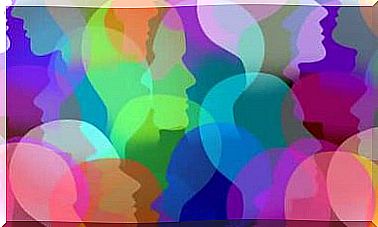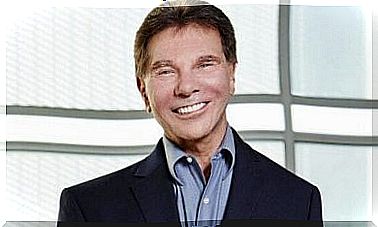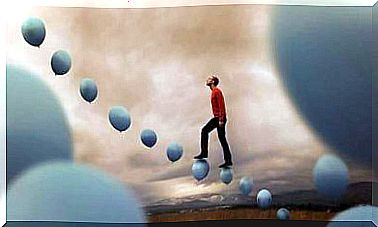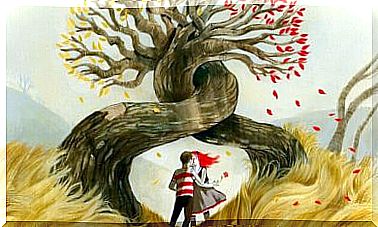Strength Comes From Each Other’s Values
The best example of this type of force is that of Gandhi. The great thing about his struggle was to have managed to win an empire, and to have done it thanks to his strength and the strength of his convictions, renouncing violence. There are many other everyday heroes with fewer mentions in the history books who add to the truth of this fact with their actions: strength comes from one’s values.
There are many who, throughout history, have endured the most terrible sorrows just to defend their convictions. They showed impressive strength. A force that comes from within, from what is in your mind and heart. There is no need for physical, economic, or any other kind of superiority. They manage to maintain themselves and often win, relying solely on their moral superiority.
This also happens in our less theatrical and more everyday life. We are able to face situations of injustice, falsehood or dishonor when our values are confronted and become a compass to be followed. The same goes for our goals: we are able to go after them when they are supported by very clear and defined values. That’s what gives us strength. This is what allows us to resist, persist and not give up.
Why does strength come from each one’s values?
Ethics is the most valuable product of culture. And also the individual. Values are the things that bring coherence to a society. They are also what allows for coexistence, making social life possible. These pacts, implicit and explicit, about what is good or desirable and about what is bad or reprehensible, are the things that shape the social fabric.
According to Jean Piaget, autonomous ethics is the most advanced point in the moral evolution of a being. It is only achieved when intelligence has developed enough. It is the result of a long process of maturation, ranging from anomie or total lack of values with which we were born, to autonomy, or the ability to think for ourselves and draw our own conclusions.
In addition to its social importance, ethics also plays a decisive role in individual life. It is what guides the actions and gives a meaning to them. It is also the strength that makes it possible to face difficulties and stand up during the most difficult times.
For some, this personal ethic is supported, based on, or dictated by, religion. In this way, in the most difficult times these people cling to their religious values. For others, ethics is a philosophy, a thesis, or some other kind of belief. There are also those who renounce their values and adopt a pragmatic and cynical stance towards life. In this case, people also renounce the attribution of meaning to actions that go beyond personal interests and convenience, living for themselves. They protect themselves from disappointment, but impoverish their lives at the same time.
behavior and values
Human beings go through an evolution process before building their own values. Not everyone makes it to the end of this process. Many are in the stage of evolution called “heteronomy”. In this phase, the child, or the adult, does not act based on their convictions or values, but is guided by what the authority figures impose. For them, the good or the bad is what the figures above them defined it to be. Its main objective is not to contradict authority figures.
When moral development comes to an end, the only authority that is obeyed is conscience itself. The difference from the previous stages is that the values are not assumed by tradition, repetition or because some authority ordered them. They become the result of personal reflection, being often contrary to what the majority of society supports. In a word, they are autonomous values.
Let’s think that values are meant. Attributes that are considered desirable or worthy of promotion. They guide behavior and give meaning to actions. They imply a commitment: to stand on the side that is considered right or right. Ethics are, however, flexible. This is not a dogmatic mandate. It always depends on a person’s constant and conscious assessment of the different situations that present themselves. Precisely for this reason values bring strength: a dependence only on the conscience itself, and not on an external order or improvisation.
We have reached a point where it is convenient to ask ourselves what values underlie our behaviors and actions. We often simply decide what we believe out of custom or tradition, or just because the majority believe in something. This is exactly what makes us feel lost at times in life. Ethics not only gives us the strength to go after what we want, it also makes it possible for most of the time our intention and our actions to remain constant and aligned.









